Portal for more climate-friendly mobility
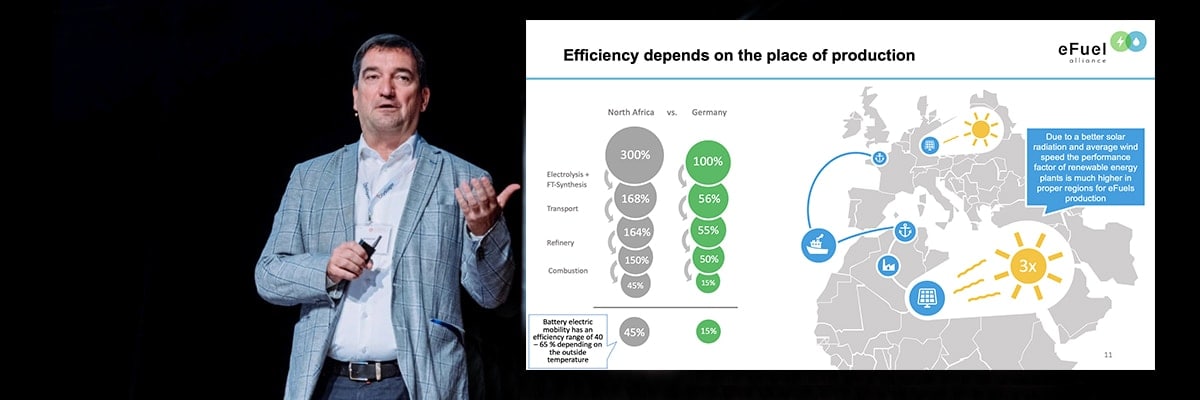
E-fuels as the perfect complement
Ralf Diemer, Managing Director of the eFuel Alliance, explains in an exclusive interview with CNG-Mobility.ch why battery electric mobility is anything but the best way; why e-fuels would provide more leverage for greater sustainability of the existing fleet; but also why e-fuels are the ideal complement to electromobility.
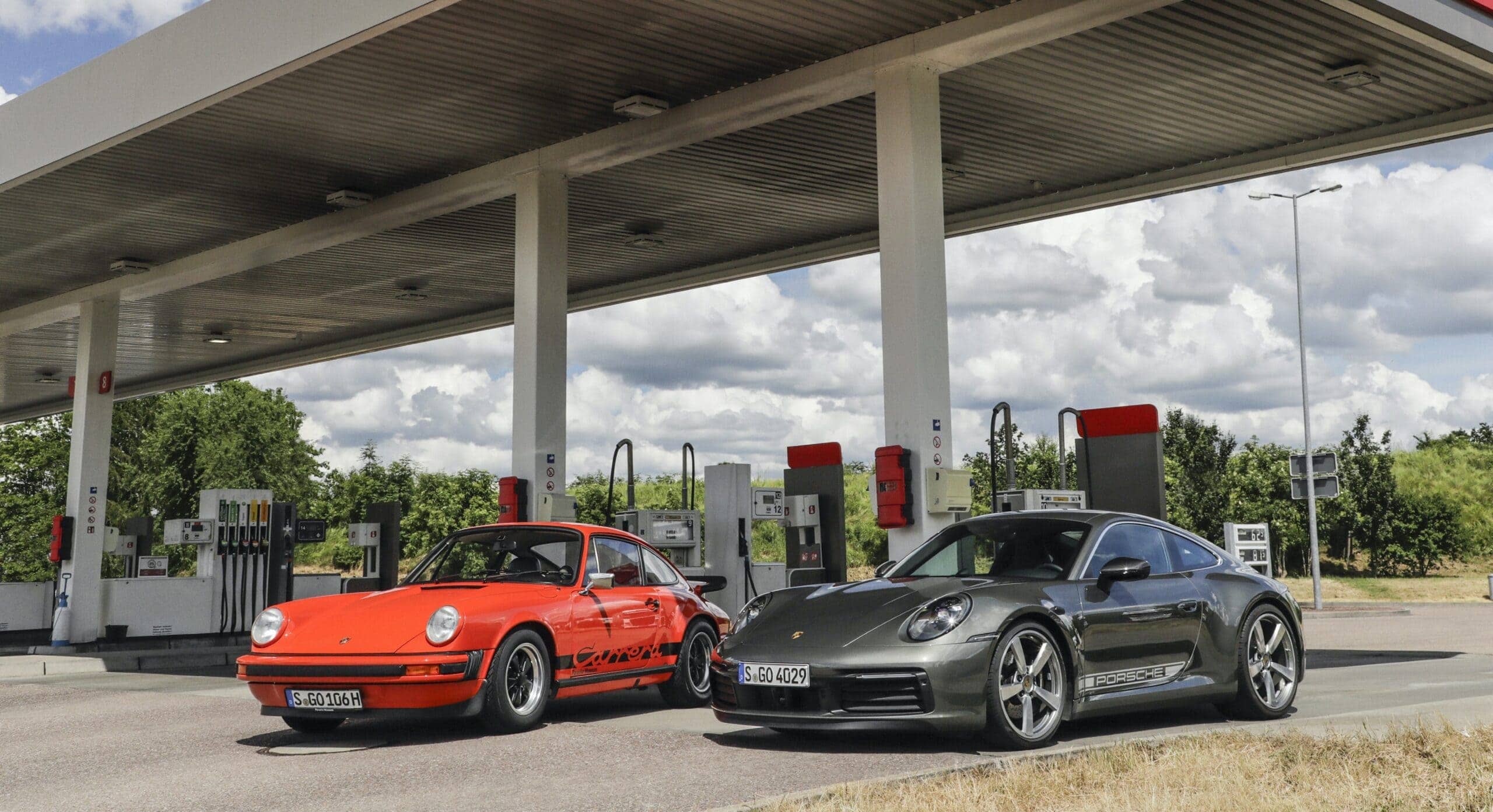 Whether old or new models, thanks to e-fuels in the tank, even sporty Porsche models could be CO2-neutral on the road. Source: Porsche
Whether old or new models, thanks to e-fuels in the tank, even sporty Porsche models could be CO2-neutral on the road. Source: Porsche
The currently planned “Fit for 55” package clearly does not make the EU fit enough for a climate-neutral future. Massive worldwide investments in renewable energies are needed to really achieve the politicians’ ambitious climate targets. This must be done in a wide range of energy sources. In order to accelerate the energy transition, it is important to adopt a technology-neutral approach. The eFuel Alliance, whose managing director is Ralf Diemer, is committed to promoting and expanding global production capacities of e-fuels and their broad application.
Mr Diemer, the calculation is easy for many car manufacturers: As the emissions of an electric vehicle are always zero according to the applicable regulations, it is extremely attractive for them to reduce the CO2 emissions of their fleets by selling more electric cars. How do you view this all-electric strategy?
Ralf Diemer, Managing Director of the eFuel Alliance: eFuel Alliance: The fact that manufacturers are currently focusing on electromobility is nothing new. At the moment, there is simply a tailpipe regulation, where you only look at the individual vehicle and the exhaust, but not at the upstream chain. As a result, the regulations state that an electric car – even if it runs on coal-fired electricity – always emit 0 grams of CO2, while an internal-combustion engine – even if it were run on 100% e-fuel – still has a CO2 value because it is simply local combustion. We think that’s wrong because you’re effectively lying to yourself. No electric car is a zero emissions vehicle – especially not at present, since many fossil energy sources are still in the European electricity grid.
An assessment of the emissions of passenger cars and light commercial vehicles over the entire life cycle would therefore be appropriate…
In an ideal world, we would now have a discussion about how we can arrive at a holistic approach to emissions. However, the EU Commission has not proposed this, and the car manufacturers are also rejecting it.

So why should the car manufacturers see it any differently?
This is understandable to me, as it is quite complex to have to take the upstream chain into account when calculating CO2. There are lots of questions: How can I access this data? How do you organise this? How far along the upstream chain do you go? What is taken into account for the CO2 value? Often everything sounds logical, but the problem lies in the design and the details. However, we do believe that this tailpipe regulation should be changed. We propose a crediting system for this purpose..
“No electric car is a zero-emission vehicle – certainly not at present, since there are still many fossil fuels in the European power grid.”
And what should this look like?
Carmakers should continue to have the opportunity to bring combustion vehicles onto the market. But if they want to, they have to invest in e-fuels themselves – in whatever form. They can make investments themselves or work with a manufacturer to ensure that fuel requirements are marketed as e-fuels over the entire useful life and thus the overall vehicle performance.
However, something like this would have to be done on the balance sheet, as is the case with electricity…
Of course, Deutsche Bahn says it’s powered entirely by green electricity. This is only true on the balance sheet, as there are certainly times when it runs on coal-fired electricity. In the end, railways must ensure that their consumption is fed into the grid in the form of renewable energies. This needs to be regulated in a similar way where e-fuels are concerned. This would also give vehicle manufacturers the opportunity to meet their climate and fleet targets, even if the ramp-up of electromobility did not work out as everyone imagined.
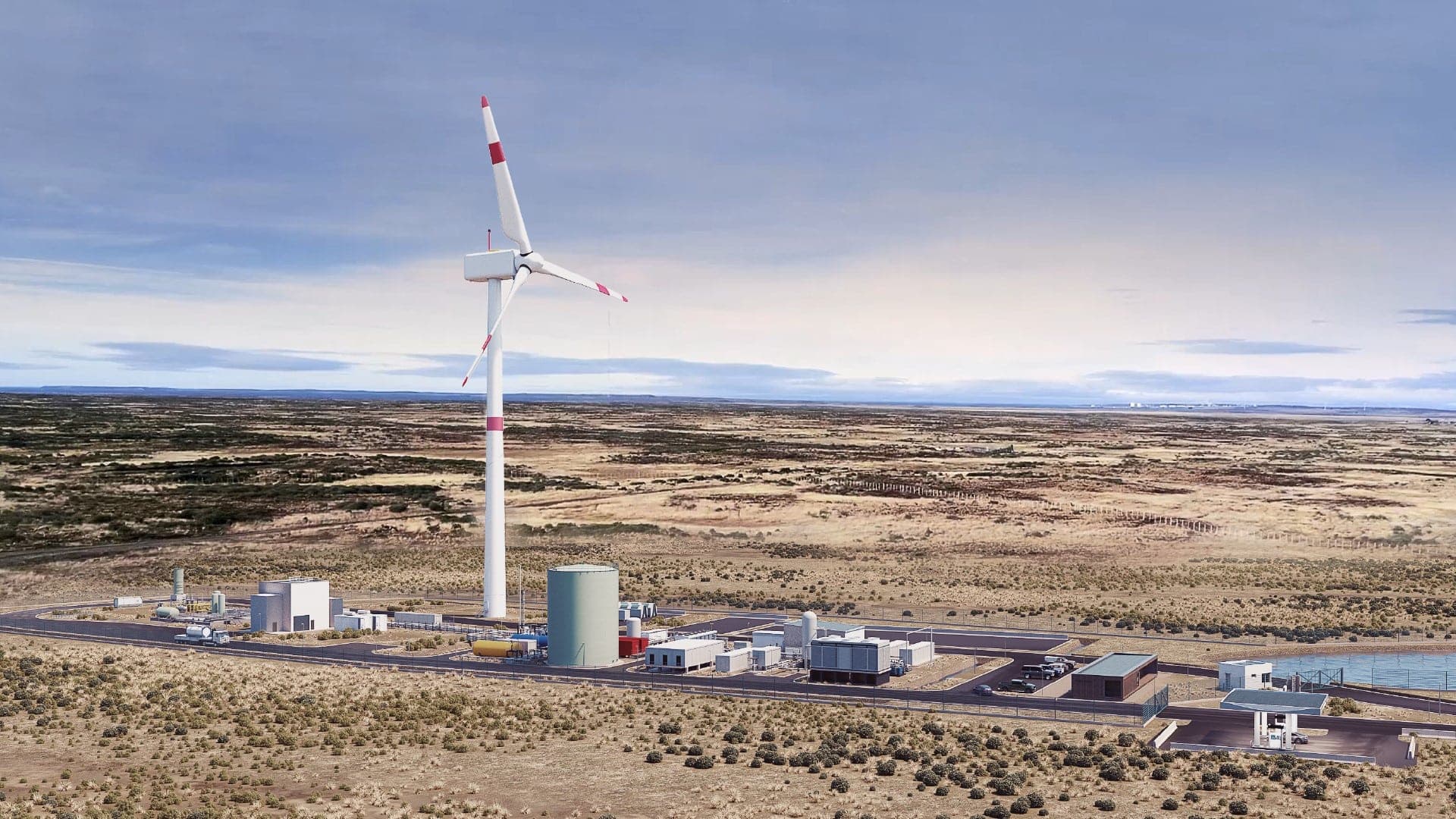 Sports car manufacturer Porsche and Siemens Energy, together with a number of international companies, are building an industrial plant in Punta Arenas, Chile, to produce nearly CO2-neutral fuel. Source: Porsche
Sports car manufacturer Porsche and Siemens Energy, together with a number of international companies, are building an industrial plant in Punta Arenas, Chile, to produce nearly CO2-neutral fuel. Source: Porsche
You are rather sceptical about e-mobility…
Especially when I think about the infrastructure. Not everything is going as quickly as planned. E-fuels would also give us a great deal of leverage, as the avoidance costs per ton of CO2 emissions are by far the highest in road traffic. This leverage could be used to make further investments in the e-fuel sector and ultimately to also achieve more climate protection.
More investments in e-fuel: But critics always claim that there are problems relating to the production of e-fuels in the required quantities and a lack of cost-effectiveness. What is your response?
First, both points are correct. This is not surprising, however, as there is currently no real incentive in the EU’s regulatory machinery to invest in e-fuels. There is no market for this. Carmakers have no incentive, as they cannot deduct these from their CO2 fleet limits. And the oil industry is currently able to meet its climate targets set by the Renewable Energy Directives by producing and selling renewable electricity. This electricity at the charging stations can be entered in the CO2 fleet calculation at four times the actual amount, making it much more rewarding than investing in sustainable fuels. On top of that, alternative fuels are taxed in exactly the same way as fossil fuels, because we have an energy tax system that is based on energy rather than CO2 emissions. This has to be changed.
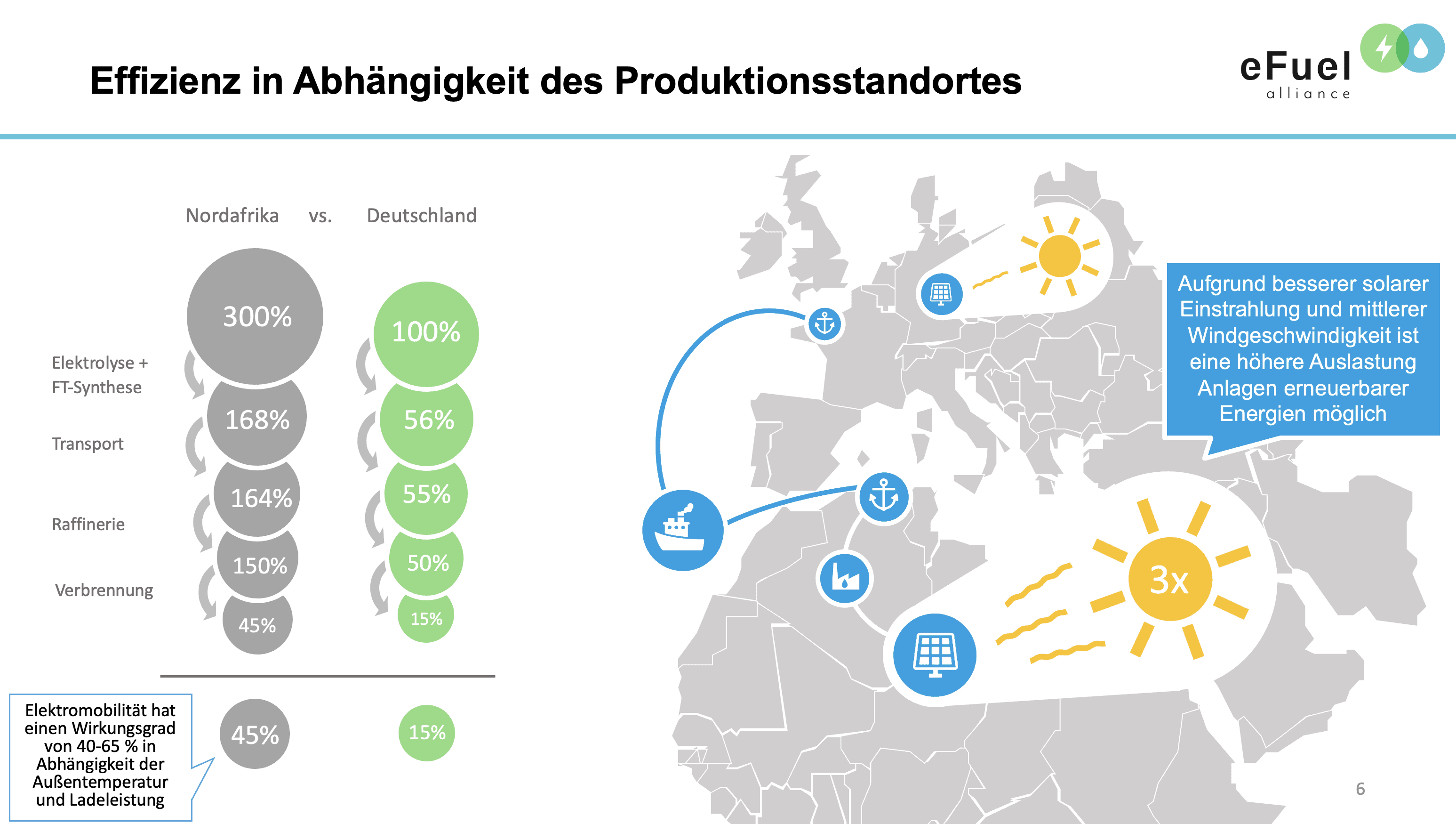
Source: eFuel Alliance
And if it does change?
Then you would be likely to see several large plants set up relatively quickly – possibly not in Europe. E-fuels and renewable energies are a global issue, and outside Europe there are many places where renewable energy, such as wind and solar, is available to a much greater extent than here. Nevertheless, we still have to make preparations for increasing the amount of e-fuels on the market. We are currently in a similar situation to the one we were in a good ten years ago, when the regulation of CO2 fleets was massively tightened for the automotive industry. In 2009, everyone also said how on Earth is that supposed to work? Where should the batteries, all the electric cars and the raw materials for them come from? Nobody asked about the costs, even though electric vehicles were much more expensive at the time than they are today. The laws were simply tightened and an electric quota was set, which has now been filled.
Will expensive e-fuels even be needed to achieve the climate transition?
The situation is also comparable to the one in Germany before the Renewable Energy Sources Act came into force. Nobody set up a wind turbine back then. This was far too expensive and there was no incentive to invest in wind power. We now also have to overcome this initial investment threshold for e-fuels. One thing is clear: We need hydrogen and e-fuels in many areas if we want to become climate neutral. This means that we now have to apply this leverage, otherwise we will not be able to meet the climate targets.
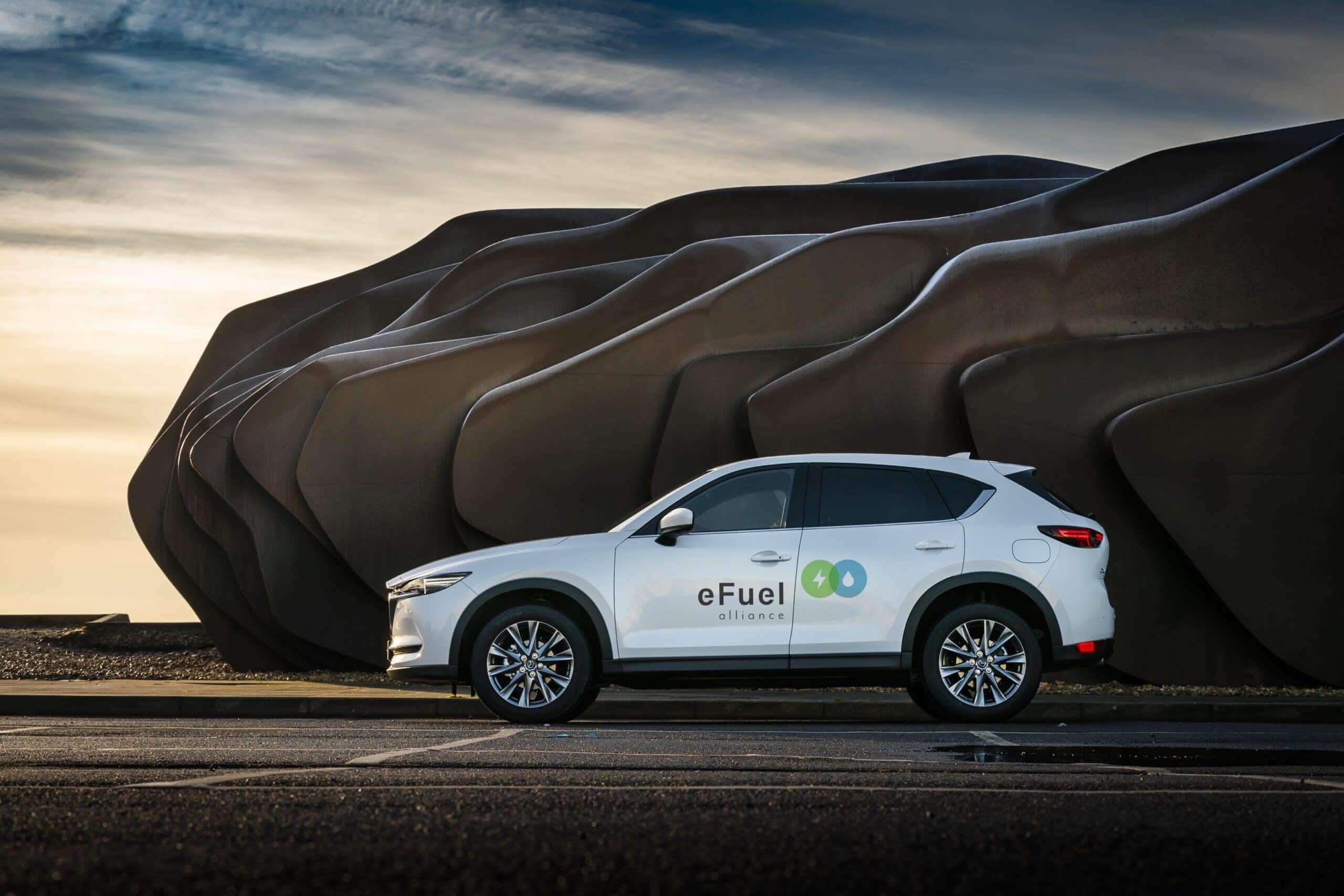 The Japanese carmaker Mazda is also part of eFuel Alliance. Source: Mazda
The Japanese carmaker Mazda is also part of eFuel Alliance. Source: Mazda
To do this, however, policymakers would not have to impose a specific path on businesses, but rather adopt a technology-neutral approach…
Yes, ideally we will have a level playing field where the various technologies compete with each other, because experience shows that we will then get the most effective solutions.
Is that enough?
Of course, it is also clear that many technologies would not exist without government funding. Not necessarily in the case of e-fuel production, but in the case of hydrogen, for example, it is relatively unlikely that the European steel industry will be able to pay the prices of green hydrogen if it is to remain competitive. As a result, it is unlikely that it will be able to meet its H2 requirements without government support, which of course also benefits the hydrogen economy as a whole. What should certainly not be done is to favour or even ban one of these technologies.
In other words, you are not opposing e-mobility, but simply calling for a technology-neutral approach…
There is no single technology that covers all solutions! There are different applications, different mobility needs, different social conditions, and I can’t simply say that we should only manufacture electric vehicles. This will not work and, by the way, the climate targets will also not be met if this approach is taken. Technology neutrality is important, because otherwise we in Europe will be confronted with certain technologies being taken over by other regions of the world. In this way, we would be entrusting technological leadership to someone else and making ourselves dependent. There is no guarantee that all other countries will also decide to phase out combustion engines just because Europe is doing so. (jas, 7 February 2022)
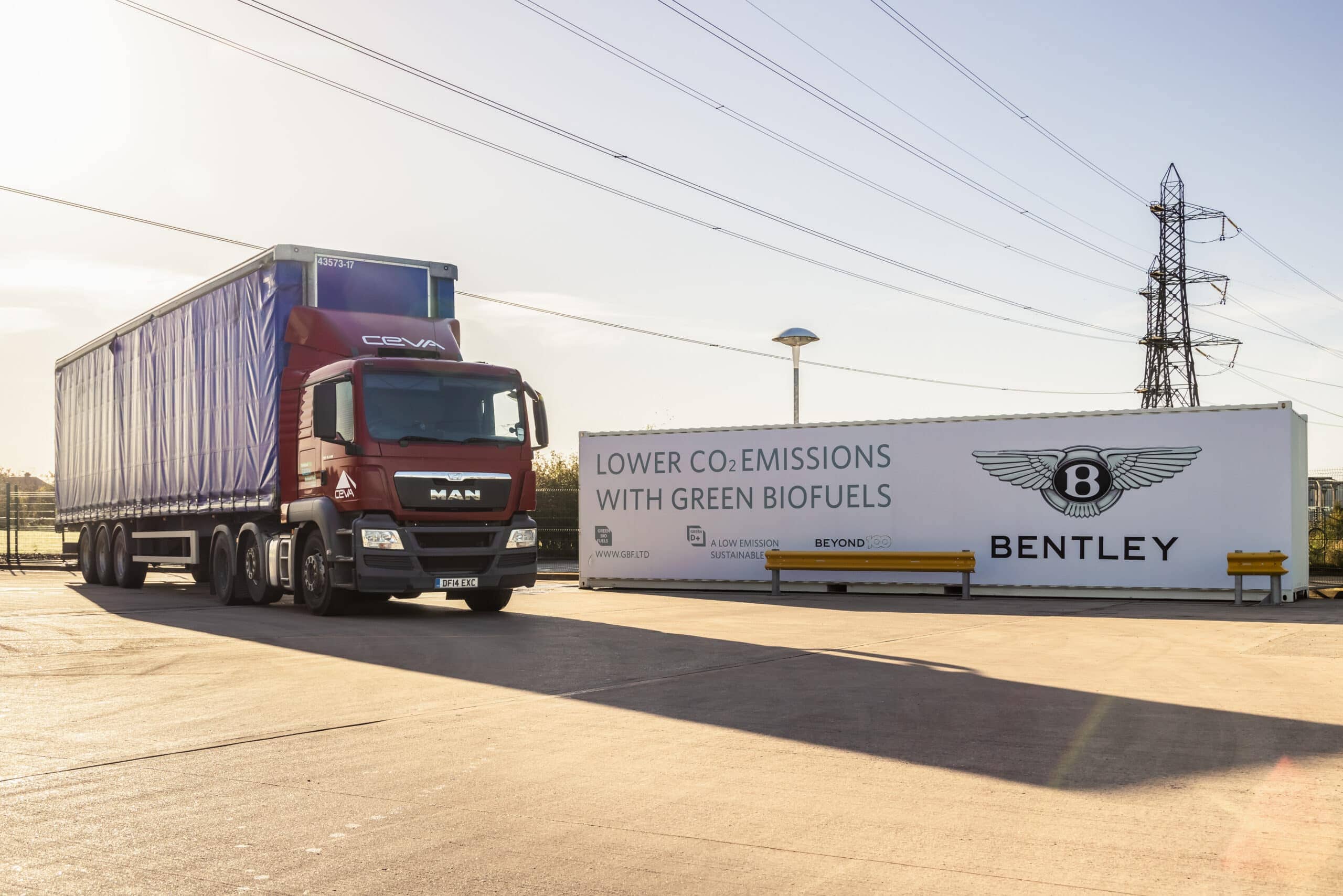 Since a year ago, the British luxury car manufacturer Bentley has also been using e-fuel to reduce its CO2 emissions. Quelle: Bentley
Since a year ago, the British luxury car manufacturer Bentley has also been using e-fuel to reduce its CO2 emissions. Quelle: Bentley
You might also be interested in
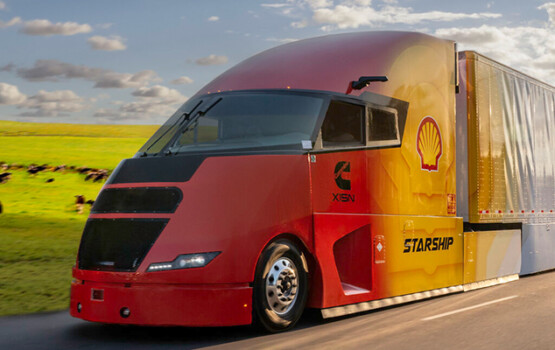
Shell Starship on record hunt
